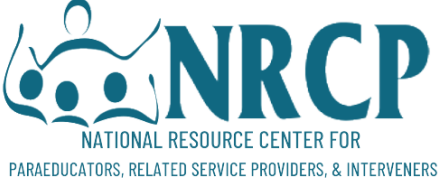These articles outline several professional development models designed to:
- prepare paraeducators for their roles and responsibilities,
- provide opportunities for advancement, and
- encourage and assist with entry into the professional ranks based on the career choices of individuals.
These documents Include programs created through collaborative efforts among provider agencies, community colleges, teacher education and other professional preparation programs. They were done to facilitate career advancement as well as models developed by local school districts to increase the productivity of paraeducator employees. They are also representative of educational opportunities to prepare paraeducators to work in different disciplines and program areas. Finally, they provide examples of training models that are being used to meet the needs of paraeducators who live and work in urban, rural and suburban areas across the country.
- A Paraeducator Training Program And Mentoring System by Arlene Barresi
A comprehensive in service program for training and mentoring paraeducators. - Career Pathways in Idaho for Paratherapists by Thomas M. Longhurst
A discussion of the appropriate training and use of paratherapists in early intervention and public school settings. - Lives In Transition by Lynn Safarik
An account of a paraprofessional’s involvement in a career advancement training program. - Paraprofessional Certification Program by Wanda Cook-Robinson
A description of a paraeducator certification program - The Los Angeles Unified School District Paraeducator Career Ladder Programs by Steve Brandick
A paraeducator/teacher training program that facilitates the development of career ladder programs. - The North Dakota Community Staff Training Program by Demetrios Vassiliou and Mary Mercer
A rural, community-based staff training program with career ladder options.
These monographs were developed through the recourses of two grants from the Division of Personnel Preparation, Office of Special Education Programs of the United States department of Education. The first is a project of national significance (H029K970088-98) Teacher and Paraeducator Teams: Strategies for Building Them. The second is another project of national significance (H029K0136) A Core Curriculum & Training Program to Prepare Paraeducators to Work with Learners who have Limited English Proficiency. The content in these monographs does not necessarily reflect the opinion of the Department and no official endorsement should be inferred. The editor of these articles was Andrew Humm.
